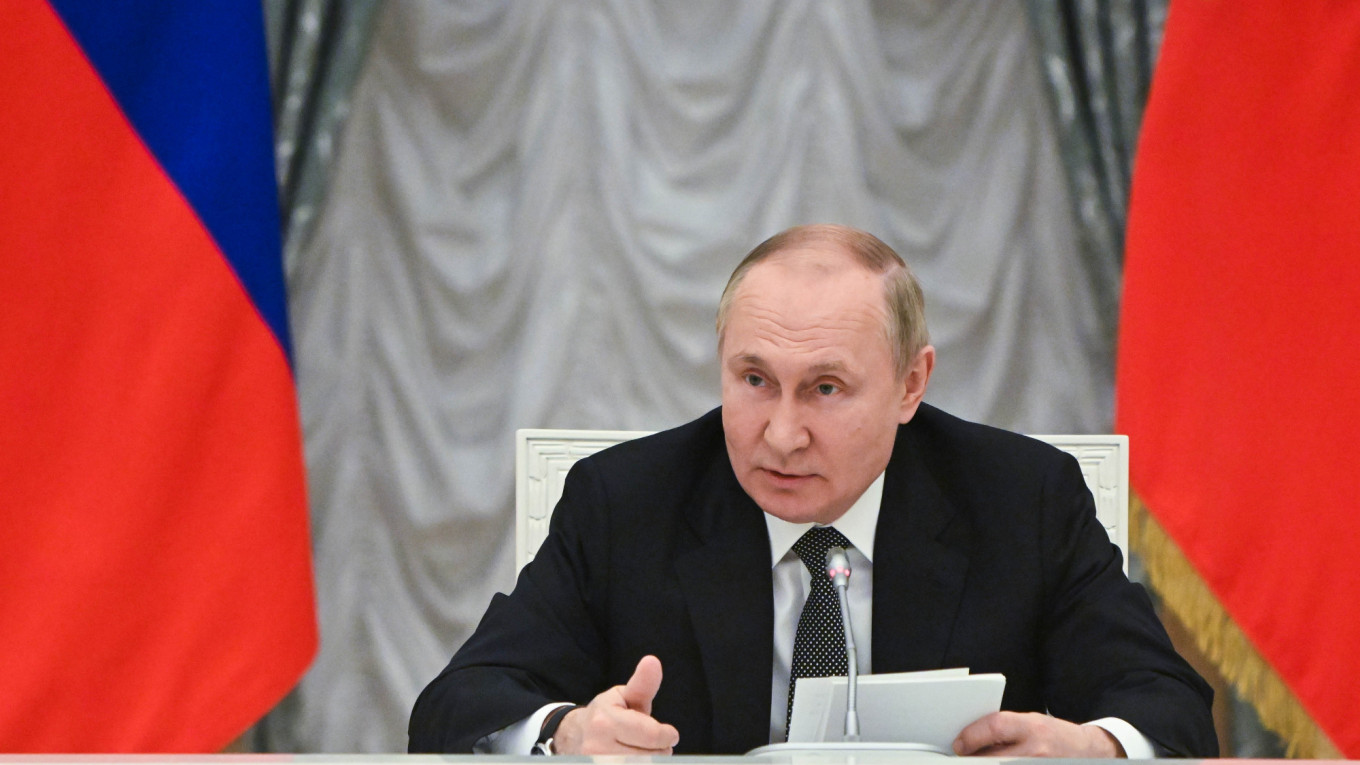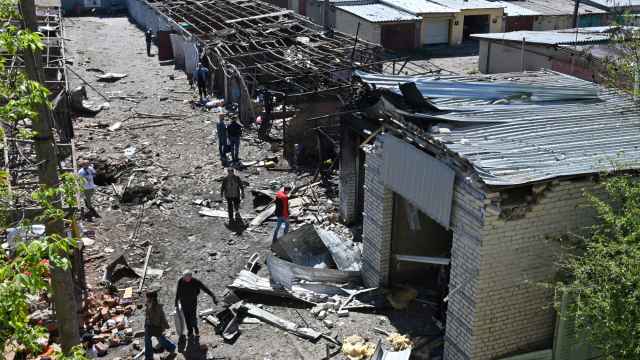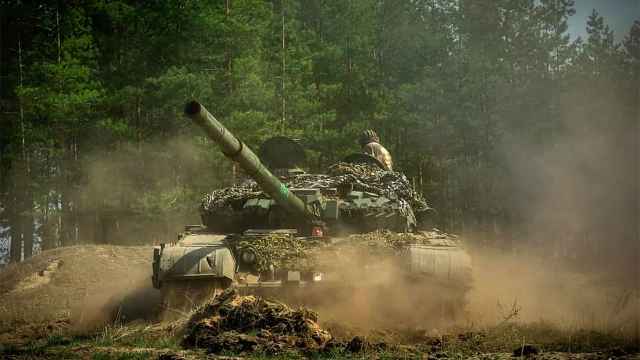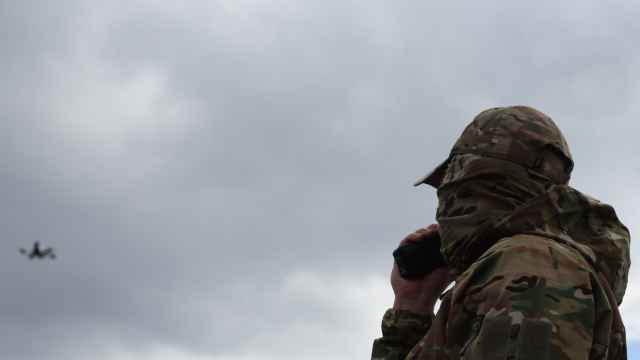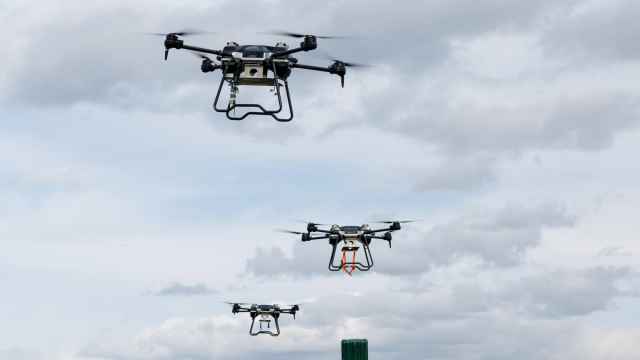Russian President Vladimir Putin on Saturday told the leaders of France and Germany Moscow is ready to look for ways to ship grain stuck in Ukrainian ports but demanded the West lift sanctions.
The Kremlin chief also warned French President Emmanuel Macron and German Chancellor Olaf Scholz against ramping up arms supplies to Ukraine, saying they could further destabilise the situation in the pro-Western country.
The talks lasted 80 minutes, the German chancellor's office said.
Putin said the difficulties in supplying grain to world markets were the result of "erroneous economic and financial policies of Western countries."
"Russia is ready to help find options for the unhindered export of grain, including the export of Ukrainian grain from the Black Sea ports," Putin told Macron and Scholz, the Kremlin said.
"An increase in the supply of Russian fertilisers and agricultural products will also help reduce tensions on the global food market, which, of course, will require the removal of the relevant sanctions."
Russia's offensive in Ukraine and Western sanctions have disrupted supplies of fertiliser, wheat and other commodities from the two countries, fuelling concerns about the risk of shortages and hunger around the world.
Russia and Ukraine produce 30 percent of the global wheat supply.
'Direct negotiations'
Macron and Scholz for their part urged Russia to lift the blockade of the Ukrainian port of Odessa to allow the export of grain, the French presidency said.
Both leaders "have taken note of the promise of the Russian president to grant ships access to the port for the export of grain without it being exploited militarily by Russia if it is first cleared of mines," the French presidency added.
The West has accused Putin of using hunger as a weapon in Moscow's offensive against Ukraine.
As Ukraine's Western backers were considering whether to send more arms supplies to Kyiv, Putin also told Macron and Scholz the continuing arms supplies were "dangerous", warning "of the risks of further destabilisation of the situation and aggravation of the humanitarian crisis," the Kremlin said.
The French and German readouts of the phone talks made no mention of the sanctions against Russia or the Western arms supplies to Ukraine.
Scholz and Macron also asked Putin to hold "direct serious negotiations" with his Ukrainian counterpart Volodymyr Zelensky, the German chancellor's office said.
The two EU leaders "insisted on an immediate ceasefire and a withdrawal of Russian troops," the chancellor's office said.
Putin said Moscow was open to resume dialogue with Kyiv, the Kremlin said without mentioning the possibility of direct talks between Putin and Zelensky.
Talks between Russian and Ukrainian delegations have been held both in person and via video-link since the Russian military offensive but have recently ground to a halt.
The French presidency added that Macron and Scholz also asked Putin to release 2,500 Ukrainian fighters who were holed up inside the Azovstal steel plant in Mariupol and who later surrendered to the Russian army.
"The president of the Republic and the German chancellor asked for the release of some 2,500 defenders of Azovstal made prisoners of war by the Russian forces," the French presidency said.
A Message from The Moscow Times:
Dear readers,
We are facing unprecedented challenges. Russia's Prosecutor General's Office has designated The Moscow Times as an "undesirable" organization, criminalizing our work and putting our staff at risk of prosecution. This follows our earlier unjust labeling as a "foreign agent."
These actions are direct attempts to silence independent journalism in Russia. The authorities claim our work "discredits the decisions of the Russian leadership." We see things differently: we strive to provide accurate, unbiased reporting on Russia.
We, the journalists of The Moscow Times, refuse to be silenced. But to continue our work, we need your help.
Your support, no matter how small, makes a world of difference. If you can, please support us monthly starting from just $2. It's quick to set up, and every contribution makes a significant impact.
By supporting The Moscow Times, you're defending open, independent journalism in the face of repression. Thank you for standing with us.
Remind me later.


